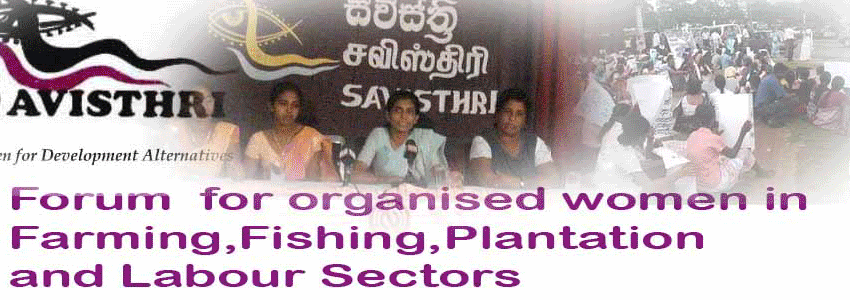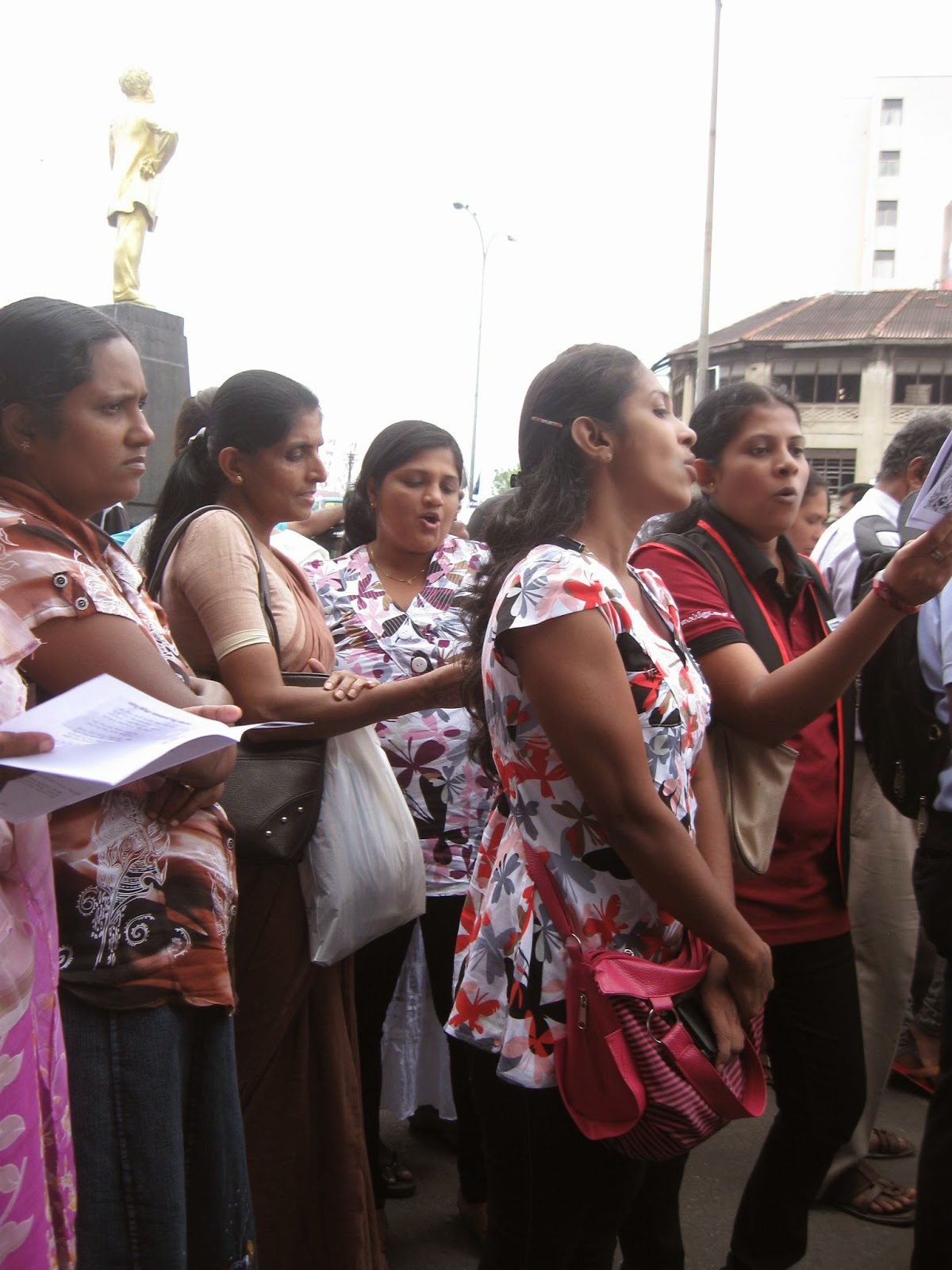With
World Food Day 2014 in view the Movement on National Land and Agricultural
Reforms (MONLAR) organized an activity to make public, especially agricultural
community, knowledgeable about the ruinous consequences of Draft Seeds and
Planting Materials Act (popularly known as Seed Act). Activists concerned about
the well being and rights of the farming community are against this due to
obvious reasons such as the uprooting of farmers’ right to produce seeds in the
traditional methods, allowing two or three multi-national companies to produce
seeds and so forth. The keenness of the government
of Sri Lanka to pass this in the Parliament is easily interpretable as a plot
between some unscrupulous politicians and multinational companies. If this is
enacted farmers are compelled to buy seeds from the multinationals at
exorbitant prices every growing season because harvest of modified seeds cannot
produce seeds useable in subsequent seasons. Current experience has proven that
the power of germination of seeds supplied by the companies is limited only to
one season. In addition, the produce from these seeds would be high in price
and could affect the consumers’ health in various ways. Moreover this is
disastrous for the food sovereignity and food security of the country.

This
activity was started from Murukandi temple in Kilinochchi on 11th
October 2014 and continued until 16thOctober in Colombo where a large protest was held in
front of the Fort Railway Station with the participation of people from all the
districts. Savisthri participation and cntribution
included members of the districts of
Anuradhapura, Matale, Monaragla and Matara joining the campaign at several
points along its way in the protest on 16.10.2014. On October 12th
Matale communities joined the Caravan at Matale town. On 13th, the members
of the Anuradhapura Savisthri Women’s Collective and the Youth Society greeted
the Caravan at Hiripitiyagama. Youths had erected an attractive pandol using
various seeds which was quite innovative. They also had arranged to provide
lunch and refreshments to all who came with the procession and who joined the
activity from Anuadhapura.

At
Matara, the members proceeded to Hambantota and joined the caravan to travel
back to Matara. On the way, they had distributed pamphlets to raise awareness
of the public during stopovers at Hambantota, Ambalantota, Ranna, Tangalla,
Dikwella and Matara. Over 5000 pamphlets had been distributed. Therein, people
in Ranna and Ambalantota were more interested because cultivation is the
livelihood of the majority in these areas.
Through
the distribution of pamphlets farmers, fishers including women had been given
an awareness regarding the conditions Stipulated in the draft seed bill and the
unfavourable impacts exerted. Masses in Ranna and Ambalantota took a very keen
interest in this and even expressed their views against the draft bill. This
activity gave an opportunity to instill in the masses the importance of
protecting their seeds, the system of conducting the exchange of seeds and to
exert impacts on the people to open some more home gardens utilizing their own
seeds.
Mention
must be made that the community in the Matara, Monaragala, and the Anuradhapura
Districts bore all the expences relating to the organization of the activity,
provision of meals and Tavelling.
Monaragala
members joined the activity at Monaragala town. They too distributed pamphlets.
In all these places presence of Savisthri as an organization concerned about
food sovereignity and food security was
conspicuous.










.png)

.png)






